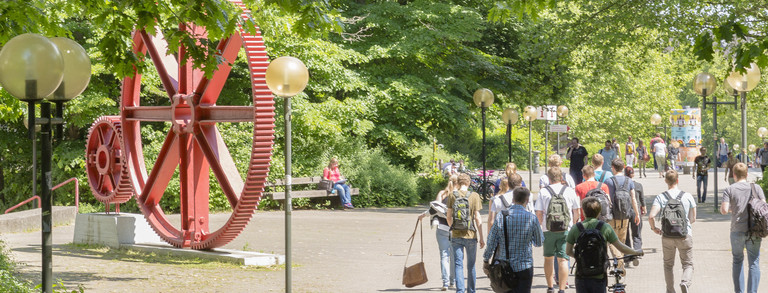"Bacteria Everywhere!" Exhibition in the Library
- Exhibitions
![[Translate to English:] [Translate to English:]](/storages/ub/_processed_/5/f/csm_petri-dish-g6423cdebc_1920_87c872d677.jpg)
Exhibition at Dortmund University Library
When: 11.2.2020 to 20.3.2020 Where: In the foyer of the University Library [1]
The exhibition will be opened on Tuesday, February 11, at 4 p.m. Interested parties are cordially invited!
Much more than pathogens
Bacteria do not have the very best reputation. A public survey would probably reveal the following picture:
- Bacteria are everywhere where it's dirty.
- Bacteria make people sick.
- To protect ourselves from bacteria, we need a great deal of hygiene in everyday life.
Bacteria have had this reputation for over 150 years, namely since they were first recognized as microscopically small independent living organisms. They are not associated with disease for nothing: many deadly infectious diseases that have plagued humans since time immemorial are in fact caused by bacteria. Between 1876 and 1883, Robert Koch proved that anthrax, tuberculosis and cholera were caused by certain bacteria. Anyone who had ever suffered from a festering wound had come into contact with the bacterium "Staphylococcus aureus". If this gets into the bloodstream, it causes "blood poisoning" (sepsis), which in the pre-antibiotic era was tantamount to a death sentence.
On the other hand, bacteria and other microorganisms, mostly microscopic fungi, are among the greatest beneficial organisms in the service of mankind. Unknowingly, they have been used in many ways since the beginning of sedentary life about 10,000 years ago. The focus here is on yeast, a tiny fungus, as a producer of wine and beer.
Microorganisms for well-being
It is probably less widely known that every human being is colonized by an incredibly large number of bacteria – and that these are essential for our well-being. Every cm² of skin is covered with bacteria; our mucous membranes and especially our intestines are a paradise for bacteria. Ultimately, we are made up of more bacterial cells than human cells: 30 trillion human cells are compared to approximately 38 trillion bacterial cells – in every human being!
Contact: Dr. Armin Quentmeier (Faculty of Bio- and Chemical Engineering)
[1] Opening hours







